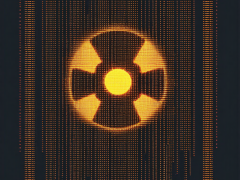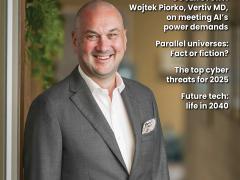One of the most notable changes is the blurring of traditional dividing lines between the various ISA-95 layers. The ISA-95 model, which has long served as a framework for integrating enterprise and control systems, is now being reinterpreted to accommodate the seamless integration of processes across all levels of enterprise automation.
The Society for Automation, Instrumentation, Mechatronics and Control (SAIMC) board has approved the inclusion of computer engineering, mechatronics engineering, factory automation and process automation in the SAIMC and structural reorganisation of the Manufacturing Enterprise Solutions Association (MESA) Africa, resulting in the formation of two distinct additional advisory councils of the SAIMC: the Computer Engineering Advisory Council and the End User Advisory Council. This change is designed to enhance focus and effectiveness in addressing diverse stakeholders' unique needs and challenges.
In response to these technological advancements and the evolving needs of the industry, and in line with the work of the SAIMC for the Engineering Council of South Africa (ECSA), the SAIMC has made the following changes to its structures:
- Incorporation of mechatronics engineering (comprising mechatronics devices, factory automation and process automation) and computer engineering including manufacturing operations management (MOM) and manufacturing enterprise solutions (MES)
Mechatronics Advisory Council headed by Prof Theo van Niekerk
- SAIMC Computer Advisory Council headed by Gawie Reyneke
- Changed the MESA Africa Summit to refocus on the SAIMC User Conference for Mining and Manufacturing and enterprises managed by the SAIMC End User Advisory Council and added the SAIMC User Advisory Council headed by Gerhard Greeff
Mechatronics engineering
Mechatronics engineering is an interdisciplinary field that combines principles from mechanical engineering, electrical engineering, computer science and control engineering. It focuses on designing and creating smart systems and products that enhance functionality and efficiency.
Factory automation refers to the use of technology and control systems to operate machinery and processes in manufacturing environments with minimal human intervention. This can include the use of robotics, computer software and other technologies to streamline production, improve efficiency and ensure consistent quality.
Process automation involves using technology to automate complex business processes and functions beyond individual tasks. It typically includes integrating applications, restructuring labour resources and using software applications throughout an organisation. The goal is to streamline operations, increase efficiency, reduce human error and improve service delivery.
In the absence of an established automation engineering discipline in South Africa, the Discipline Specific Training Guidelines (DSTG) cater for mechatronics engineering as well as factory automation and process automation. This enabled those involved in factory automation and process automation to register with ECSA and be interviewed by peers in their specific speciality areas.
Computer engineering
Computer engineering is a discipline that integrates electrical engineering and computer science to develop computer systems. It involves designing and building hardware and software components including microprocessors, circuit boards and networks.
In the evolving landscape of integrated technologies, a new category of engineers has emerged: professionals who use computers to connect field devices with enterprise resource planning systems directly impacting production systems. To support this emerging group, the SAIMC, in collaboration with ECSA, developed the Computer Engineering Code of Practice.
Reyneke was instrumental in developing the Computer Engineering Code of Practice for ECSA. His extensive experience and leadership in the industry and the MOM/MES fields will enable achievement of the strategic goal to be the recognised home for computer engineers in South Africa.
Identification of Engineering Work, published in Government Gazette Volume 669 on March 26, 2021, No 44 333, classifies the activities performed by practitioners in MOM and MES fields as "engineering work", which falls under the regulation of the Engineering Professions Act 46 of 2000. A challenge arises because many of these practitioners do not fit the traditional categories of technicians, technologists or engineers and thus cannot register with ECSA under these classifications. Despite originating from non-engineering backgrounds, these individuals have, through specialised training and experience, evolved to perform work now recognised as "engineering work". To address this, a specified category, known as enterprise integration practitioners, has been established within ECSA. Additionally, the DSTG accommodates these practitioners, enabling those involved in MOM and MES fields to register with ECSA. This process includes peer interviews in their specific areas of expertise, allowing them to continue their current work.
MESA Africa Summit
For the past 15 years, the MESA Africa Summit has been pivotal in industrial automation and manufacturing excellence. The summit has concentrated on MES and MOM, which both fall under the domain of computer engineering.
In response to these technological advancements and the evolving needs of the industry, the MESA Africa Summit has been expanded and rebranded as the SAIMC User Conference for Mining and Manufacturing Enterprises. This transformation is not merely a change in name but a strategic enhancement that allows the summit to comprehensively address and explore aspects across all levels of enterprise automation in alignment with the latest trends in technology.
The SAIMC User Conference for Mining and Manufacturing Enterprises will continue to serve as a premier platform for industry professionals, thought leaders and innovators to come together and share insights, best practices and emerging technologies. The summit aims to foster a deeper understanding of how the ISA-95 model can be applied in today's dynamic technological landscape by covering a broader spectrum of topics.
Amid these changes, Jane Collett, who has been the driving force behind the success of the SAIMC events, MESA Africa summits and KS4I events, will continue to lead these new initiatives with her usual dedication an














